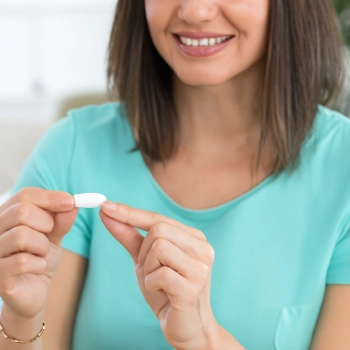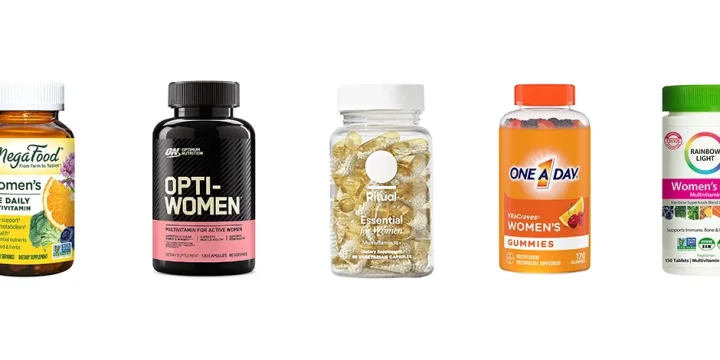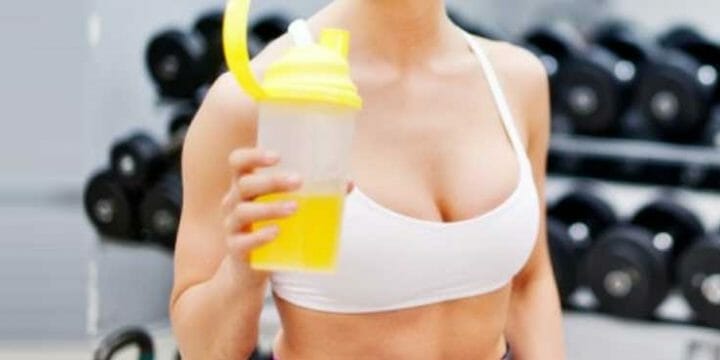Is there a significant difference between men's and women's multivitamins, if so, how can it impact overall health and wellness?
As a Certified Professional Trainer, I've observed that these multivitamins are designed to meet the specific needs of women, making them more effective.
To help you understand why it's better to stick to your own multivitamins, I researched more on the topic and also consulted a dietician on the issue.
Keep reading and find out if multivitamins are really gender-specific.
Quick Summary
- There are no side effects if a woman takes men's multivitamins but it shouldn't be a habit because each gender has specific needs.
- A woman taking a man's multivitamin might not fulfill the vitamin requirement levels, or it might lead to excessive consumption of some vitamins.
- Some of the top vitamins women need are iron, calcium, Vitamin D, Vitamin C, and B vitamin folate.
- As a fitness trainer, I've seen the best results when women choose supplements aligned with their gender-specific needs.
Can Women Take Men’s Vitamins?

Yes, women can take men's vitamin supplements since they won't harm them especially when taken once in a while. But should they? No, because men's vitamins contain doses that don’t align with the needs of an average female body.
The amounts are either too high in some vitamins or too low in critical female minerals such as Iron.
That's not to say that men and women don't share some vitamin requirements. They actually share identical amounts of vitamins B6 and B12 [1]. So, sharing supplements containing only these vitamins is perfectly fine.
However, they don't share the same dosage requirement which means that sharing the general gender-specific vitamin supplements won't work best for both men and women.
Moreover, excessive intake of certain vitamins for a long time can lead to symptoms of toxicity such as nausea and some health complications.
The exact doses for men and women are defined through the Recommended Dietary Allowances (RDAs) of the Food and Nutrition Board of the Institute of Medicine. That’s why men’s and women’s multivitamins often have different formulas [2]:
“There is a rationale for having sex-specific vitamins. The recommended dietary allowance are in fact broken down into male and female, as well as age groups.”
- Jeffrey B. Blumberg, Professor of Nutrition Science & Policy at Tufts University
So, how many vitamins you need depends on both your gender and your age. That’s why women are better off taking women’s multivitamins.
Women’s Vs. Men’s Vitamins
A gender-specific vitamin supplement can better fulfill your unique needs.
As we’ve already said, these needs are largely defined by the RDAs.
But specific conditions, like pregnancy and menopause, can also affect our vitamin and mineral requirements. We’ll look at both factors in more depth.
Different Recommended Dietary Allowances

The Food and Nutrition Board defines different Recommended Dietary Allowances (RDAs) for men and women.
The RDA tells us how much nutrients we need daily to satisfy our body’s requirements and is valid for up to 98% of the healthy population [3].
So, the chances are it will fit your needs to a T. That’s why you should follow it while taking a supplement.
However, the RDA depends on both gender and age. So, your RDA may differ from your father’s or your partner’s.
Here’s what the RDA looks like for men and women between ages 31 and 50 [4]:
- Vitamin A — men: 900 μg per day; women: 700 μg per day
- Vitamin B3 (Niacin) – men: 16 mg per day; women: 14 mg per day
- Vitamin B6 — men: 1.3 mg per day; women: 1.3 mg per day
- Vitamin B12 – men: 2.4 μg per day; women: 2. 4 μg per day
- Vitamin C – men: 90 mg per day; women: 75 mg per day
- Iron — men: 8 mg per day; women: 18 mg per day
As you can see, men’s and women’s needs don’t fully overlap. So, taking men’s multivitamins may:
- Not entirely fulfilling women’s needs.
- Lead to excessive consumption of vitamins like vitamins A, B3 (niacin), and C.
Different Nutrient Needs And Conditions

Having trained both men and women, I've seen firsthand how our bodies respond differently to workouts and nutrition. Women and men are built differently and go through unique situations in life. Both of these factors dictate our vitamin needs.
Pregnant women have more demand for folic acid which is crucial for fetal development. This dictates the vitamin needs and stage-specific vitamin intake as well.
Premenopausal women need a lot more iron than men. I have to mention iron since it’s so frequent in women’s multivitamins, even though it’s a mineral.
Men’s multivitamins aren’t likely to contain iron in doses that would be adequate for women [5]. As a result, they won’t fulfill the needs of a premenopausal woman’s body.
However, the iron quota decreases after menopause. So, postmenopausal women will need the same amount of iron as men. That’s when sharing vitamin supplements may be okay. But menopause isn’t the only factor that makes our needs different.
Other circumstances that might influence how much vitamin a person needs:
- Women need more vitamins and minerals when pregnant and breastfeeding [6].
- Men tend to need higher doses of some vitamins because they’re larger than women.
From my chats with clients and fellow trainers, I've come to appreciate how gender-specific multivitamins can offer protection against conditions unique to each gender.
For example, men’s multivitamins usually have higher selenium and lycopene content, which may help protect against prostate cancer [7].
On the other hand, women over 50 start losing bone mass more rapidly than men. So, they may need extra calcium to maintain bone health [8] in later life.
What Should Women’s Vitamins Contain?

I've experimented with various supplements in my fitness journey. And based on my research and personal experience, here are the top five vitamins that women should consider getting from supplements.
- Calcium: Women over 50 should increase their daily calcium intake from 1,000 mg to 1,200 mg to maintain bone health [9].
- Vitamin D: Vitamin D helps your body absorb calcium [10].
- Iron: Women lose iron in their menstrual period, which is why they need to replace it. Also, pregnant women need more iron — around 27 mg per day [11].
4. Vitamin C: Although women need a slightly lower amount of vitamin C than men, this vitamin is still crucial for maintaining healthy, wrinkle-free skin [12] and a strong immune system.
5. B vitamin Folate: Also known as folic acid, this vitamin helps prevent birth defects and is frequently prescribed to pregnant women [13].
I always advise my female fitness clients to consult with a dietician or nutritionist to ensure they get the right balance of vitamins and nutrients tailored to their specific needs.
Related: Can Men Take Women's Vitamins?
FAQs
Can You Overdose on Vitamins?
Yes, you can overdose on vitamins. But this only happens if you’re exceeding your RDA by a long shot for a longer time. Some of the vitamins that are known to be toxic when taken in excess are vitamins A, B, D, and E, as well as iron [14].
Can We Take Multivitamins During Periods?
Yes, you can take multivitamins during periods. It’s recommended that you do. Blood loss during periods causes you to lose iron, vitamin C, and B vitamins [15], which you can replace with a supplement.
References:
- https://nap.nationalacademies.org/read/11537/chapter/17
- https://archive.nytimes.com/well.blogs.nytimes.com/2016/12/09/do-men-and-women-need-separate-multivitamins/
- https://ods.od.nih.gov/HealthInformation/nutrientrecommendations.aspx
- https://nap.nationalacademies.org/read/11537/chapter/17
- https://www.betterhealth.vic.gov.au/healthyliving/healthy-eating
- https://www.latimes.com/archives/la-xpm-2009-apr-06-he-skeptic6-story.html
- https://www.ncbi.nlm.nih.gov/pmc/articles/PMC7464847/
- https://www.niams.nih.gov/health-topics/bone-health-and-osteoporosis
- https://www.sharecare.com/diet-nutrition/diets
- https://www.uofmhealth.org/health-library/za1487
- https://www.betterhealth.vic.gov.au/healthyliving/healthy-eating
- https://www.webmd.com/beauty/ss/slideshow-benefits-of-vitamin-c-for-skin
- https://totalshape.com/supplements/best-multivitamin-for-women/
- https://www.flushinghospital.org/newsletter/can-you-overdose-on-vitamins/
- https://abeautifulmess.com/nutrition-for-your-menstrual-cycle/
About The Author
You May Also Like






